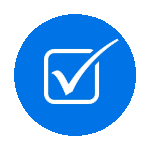Chapter 02: Professional Standards, IPPF, and Ethical Considerations
Introduction

This chapter explores the essential frameworks, ethical standards, and continuous improvement practices that define and elevate the internal auditing profession. It offers a detailed examination of the International Professional Practices Framework (IPPF), the Internal Auditor’s Code of Ethics, quality assessment and assurance in auditing, the practical application of professional standards, and the critical role of lifelong learning in developing internal auditing professionals. It opens with an in-depth look at the IPPF, the global cornerstone of professional practice for internal auditors. It introduces the framework, outlines its key components, and discusses the role these standards play in guiding auditors in their work. The evolution of the IPPF is explored, providing historical context and highlighting recent updates that respond to the changing landscape of internal auditing.
Ethics takes centre stage in any discussion about the Internal Auditor’s Code of Ethics. This chapter also underscores the principles of integrity, objectivity, confidentiality, and competency as foundational to building trust and credibility in auditing. Quality assessment and assurance in auditing are thoroughly examined, highlighting the importance of Quality Assurance and Improvement Programs (QAIP) in maintaining high standards of audit quality. The chapter compares internal and external quality assessments, discusses tools and techniques for quality assessment, and explores continuous improvement strategies to enhance audit quality and stakeholder confidence.
The significance of standards in risk assessment, planning, and reporting is outlined, alongside common pitfalls in compliance and the impact of emerging trends on professional standards. Finally, the chapter emphasizes the importance of lifelong learning in internal auditing. It discusses the need for continuous education in a rapidly evolving field, identifies learning needs from personal and organizational perspectives, and explores formal and informal avenues for professional development. The role of professional associations, the potential of technology-enabled learning, and the importance of building a personal learning network are also covered, highlighting the necessity of planning for career longevity through lifelong learning.
 Learning Objectives
Learning Objectives
By the end of this chapter, you should be able to
- Gain a comprehensive understanding of the IPPF, its components, and its role in guiding internal auditing practices.
- Recognize the importance of ethics in internal auditing and apply the Code of Ethics in professional scenarios.
- Evaluate quality assessment and assurance processes in auditing to maintain and enhance audit quality standards.
- Apply professional standards in internal auditing to ensure effective practice, compliance, and adaptation to emerging trends.
- Embrace lifelong learning as a cornerstone for professional development and career advancement in internal auditing.

